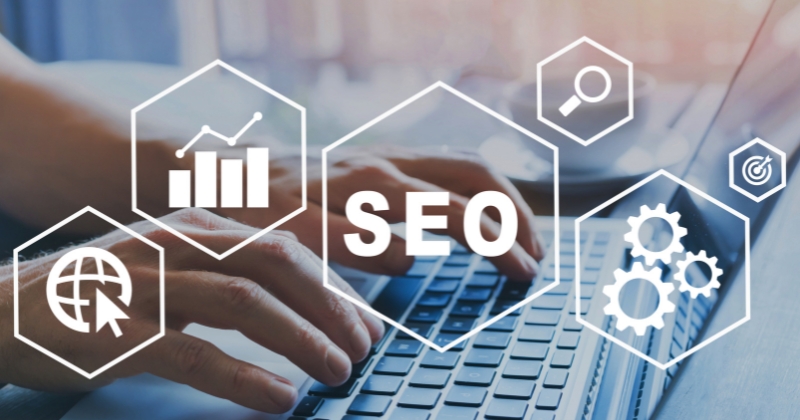In today’s fast-paced world, digital marketing is a game-changer for small businesses. It helps them reach more people, connect with customers, and grow without spending a fortune. But how can small businesses benefit from digital marketing in practical terms? Let’s explore this.
Digital marketing empowers small businesses by offering cost-effective strategies to enhance visibility, engage with customers, and drive growth. With tools like social media, SEO, and email marketing, businesses can level the playing field, regardless of size or budget.
Curious to know more about how digital marketing reshapes opportunities for small businesses? Keep reading to discover valuable insights and actionable advice.
Overview of the Challenges Faced by Small Businesses in Traditional Marketing
Traditional marketing poses significant hurdles for small businesses, primarily due to limited budgets and resources. Advertising through television, radio, or print media often requires substantial investment, making it inaccessible for many. Additionally, measuring the effectiveness of these methods is difficult, leaving businesses uncertain about their return on investment.
Small businesses often struggle to compete with larger companies in traditional marketing channels. This is where Affordable Digital Marketing Services come into play, offering cost-efficient solutions to expand reach and target audiences effectively. Digital marketing levels the playing field, enabling small businesses to gain visibility and grow without the constraints of high costs.
How Can Small Businesses Benefit from Digital Marketing?
Digital marketing offers small businesses the tools to thrive in competitive markets by enabling tailored customer engagement, measurable outcomes, and scalable growth strategies. Let’s delve into the specific ways it makes a difference.

Cost-Effectiveness
Unlike traditional advertising, digital marketing allows small businesses to reach large audiences with minimal investment. Tools like social media ads, Google Ads, and email campaigns provide affordable options for targeting specific demographics. This ensures maximum impact without stretching the budget.
Enhanced Customer Engagement
Social media platforms like Facebook, Instagram, and Twitter enable real-time interaction with customers. Businesses can build relationships, address queries, and showcase their brand personality, fostering loyalty and trust. Engaged customers are more likely to convert into repeat buyers.
Targeted Marketing
With digital tools, businesses can target specific audiences based on age, location, interests, or behavior. This ensures the right message reaches the right people, reducing wasted efforts and increasing conversion rates. Personalized marketing campaigns can significantly boost customer satisfaction.
Improved Brand Visibility
SEO and content marketing help small businesses appear on search engine results pages (SERPs), increasing their online visibility. By creating valuable content and optimizing for keywords, businesses can attract organic traffic and position themselves as industry experts.
Data-Driven Decisions
Digital marketing provides access to detailed analytics and insights, allowing businesses to monitor campaign performance. Metrics like click-through rates, conversions, and customer behavior help refine strategies and improve ROI, ensuring better decision-making.
Flexibility and Scalability
Whether launching a new product or promoting seasonal sales, digital marketing offers unmatched flexibility. Campaigns can be adjusted in real time to meet changing goals. As the business grows, digital marketing strategies can scale to accommodate larger audiences without significant additional costs.
Digital marketing empowers small businesses to thrive in an ever-competitive landscape. By leveraging cost-effective tools and strategies, they can enhance visibility, engage customers, and achieve sustainable growth.
Future of Digital Marketing for Small Businesses
The future of digital marketing holds immense potential for small businesses, offering new opportunities to grow and connect with audiences. As technology evolves, so do the tools and strategies that make digital marketing indispensable.
- AI and Automation: Artificial intelligence will streamline marketing efforts, enabling automated customer interactions, personalized recommendations, and predictive analytics. This allows businesses to deliver tailored experiences with minimal effort.
- Voice Search Optimization: With the rise of voice-activated devices, optimizing content for voice search will become crucial. Small businesses must adapt their strategies to include conversational keywords and localized content for better visibility.
- Video Marketing Dominance: Video content will continue to dominate digital platforms. From short reels to live streams, businesses can use video to showcase products, share stories, and engage audiences creatively.
- Sustainability and Ethical Marketing: Consumers increasingly value brands with ethical practices. Small businesses that adopt sustainable marketing approaches will build stronger connections and brand loyalty.
- Augmented Reality (AR) Experiences: AR will transform the way businesses engage customers, especially in e-commerce. Small businesses can use AR to provide interactive experiences, like virtual product trials, enhancing customer satisfaction.
- Enhanced Social Media Tools: Social media platforms are continuously evolving, offering advanced features for marketing. Small businesses will benefit from tools like shoppable posts, influencer collaborations, and audience insights.
The future of digital marketing promises small businesses unprecedented opportunities for growth and innovation, making it an exciting time to embrace these advancements.
Conclusion
Digital marketing is an invaluable tool for small businesses, offering cost-effective and impactful ways to grow. From improving customer engagement to leveraging data-driven strategies, the question, “How can small businesses benefit from digital marketing?” finds its answer in the numerous opportunities digital platforms provide.
To succeed, small businesses must embrace flexibility, stay updated with emerging trends, and focus on customer-centric strategies. By doing so, they can harness the full potential of digital marketing. Wishing you success in your digital marketing journey!



